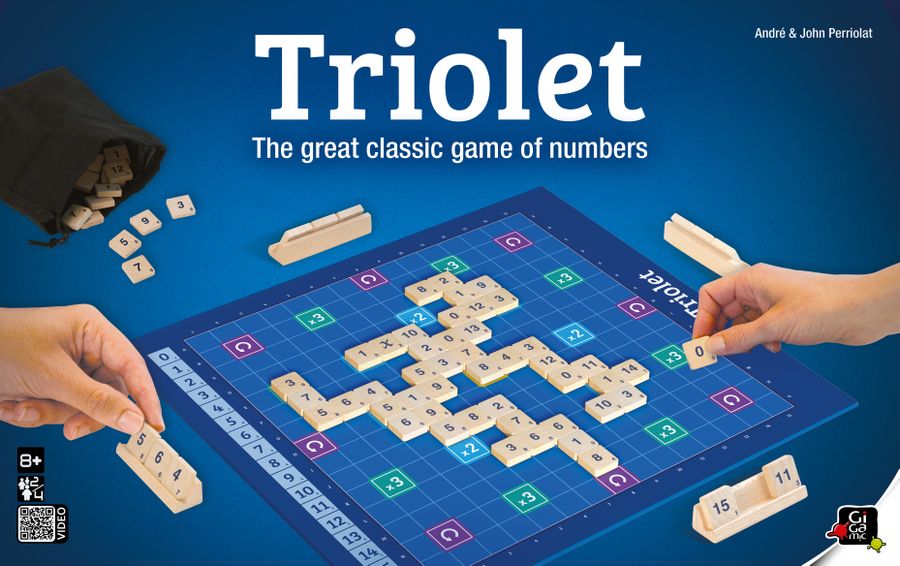Triolet (1996) Board Game
Triolet is an abstract strategy board game that was released in in 1996. It is designed by André Perriolat and John Perriolat, and features gameplay that involves math and numbers. The game is known for its tile placement mechanism and is suitable for players aged 8 and above. Triolet has been published by various companies, including Albi, DJ Games, Gigamic, and Hachette Boardgames UK.
Game Components of Triolet
How To Setup Triolet
To set up Triolet, place the game board in the middle of the playing area. Shuffle the tiles and distribute them evenly among the players, or place them within reach of all players. Each player starts with a set of tiles, and the objective is clear from the outset.
Gameplay Mechanics and Game Objective
Player Experience
Triolet is an easy game to learn, making it accessible to players of all ages, especially those who enjoy math and strategy. The game requires observation and mental calculation skills, keeping players engaged and challenged. It is designed for 2 to 4 players and typically lasts about 30 minutes.
Pros
Cons
Personal Thoughts on Triolet
Triolet is perfect for families or individuals looking for a casual yet intellectually stimulating game. It’s great for children to develop their math skills in a fun and engaging way. However, it might not offer enough complexity for experienced gamers seeking deeper strategy. Overall, Triolet is an excellent choice for those who enjoy light, math-based games with a touch of strategy.
We are supported by our audience. When you purchase through links on our site, we may earn an affiliate commission, at no extra cost for you. Learn more.

